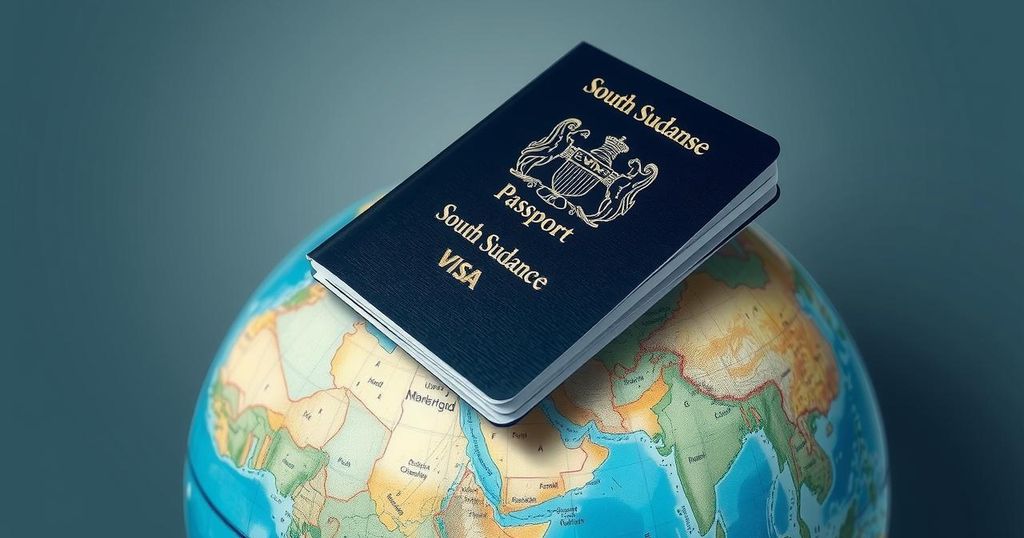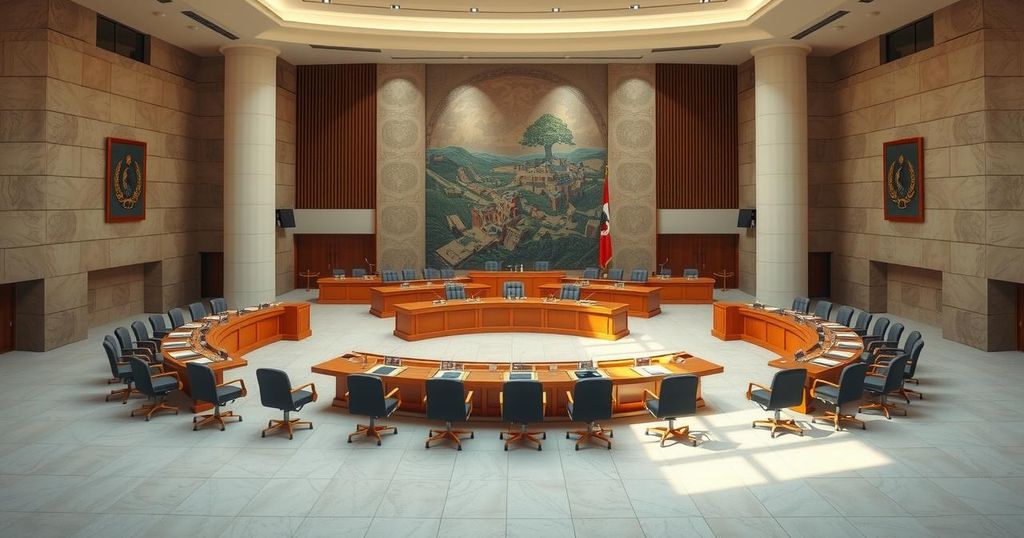In South Sudan, 22 political and military personnel have been arrested amidst violent clashes, sparking a political crisis. Human Rights Watch emphasizes the need for transparency, legal adherence, and the end of enforced disappearances. Calls have been made for international support to uphold human rights and process detainees lawfully.
In South Sudan, authorities have detained at least 22 political and military figures amidst escalating violence that erupted in February 2025. Human Rights Watch identifies these arrests, predominantly targeting associates of First Vice President Riek Machar, as exacerbating the nation’s ongoing political crisis. Nyagoah Tut Pur, a researcher with Human Rights Watch, emphasized the need for transparency regarding the detainees’ conditions and urged authorities to uphold due process rights in this precarious security environment.
The detentions commenced on March 4, aligning with intense clashes in Nasir, Upper Nile, where government forces are contending with local militias. Many of the arrested individuals are connected to Machar’s SPLA-IO, an opposition faction. Human Rights Watch has called upon the government to immediately halt the incommunicado detention of these individuals to safeguard their legal rights.
Notable arrests include Lieutenant General Gabriel Duop Lam, deputy chief of staff of the unified army, and Petroleum Minister Puot Kang Chol, who was taken into custody along with several others by National Security Service (NSS) agents. Their fates remain unclear, violating international law regarding enforced disappearances.
Further arrests on March 6 included Thomas Jal Thomas, deputy inspector general of police, who was briefly detained but later released. On the same day, Stephen Par Kuol, peacebuilding minister, and SPLA-IO member Mam Pal Dhuor faced similar treatment.
The situation in Nasir worsened with attacks on a UN helicopter, killing a crew member and incurring injuries to two others. The army has since increased its presence at critical road junctions around Juba amid rising tensions, reflecting a deteriorating security landscape.
Spokespersons for the NSS and the army have not responded to inquiries about the detentions. However, government officials have justified arrests based on purported intelligence linked to clashes in Nasir and surrounding areas. Human Rights Watch asserts that the NSS operates with minimal legal oversight, allowing for egregious rights violations.
Moreover, the government’s prior use of vague charges to suppress dissent signifies a broader trend of human rights infringements. Observers urge immediate legal review of these arrests and insist upon adherence to democratic principles and human rights standards as fundamental tenets for the state’s governance.
The international community, including the United Nations and regional bodies, is urged to advocate for the cessation of enforced disappearances and to demand that all detainees be brought before an independent judiciary. Nyagoah Tut Pur reiterated, “South Sudanese authorities should cease arbitrary detention of opposition members and other actions that amount to harassment,” calling for international pressure to ensure human rights compliance and to de-escalate rising political tensions.
This situation requires immediate attention to restore legal processes and human rights safeguards.
South Sudan is currently facing a severe political crisis exacerbated by the detention of opposition leaders and military personnel. Human Rights Watch has called for transparency, legal oversight, and respect for human rights amid escalating violence and enforced disappearances. The international community’s intervention is crucial to uphold due process and mitigate political tensions, thereby fostering stability in this fragile nation.
Original Source: www.africa.com




